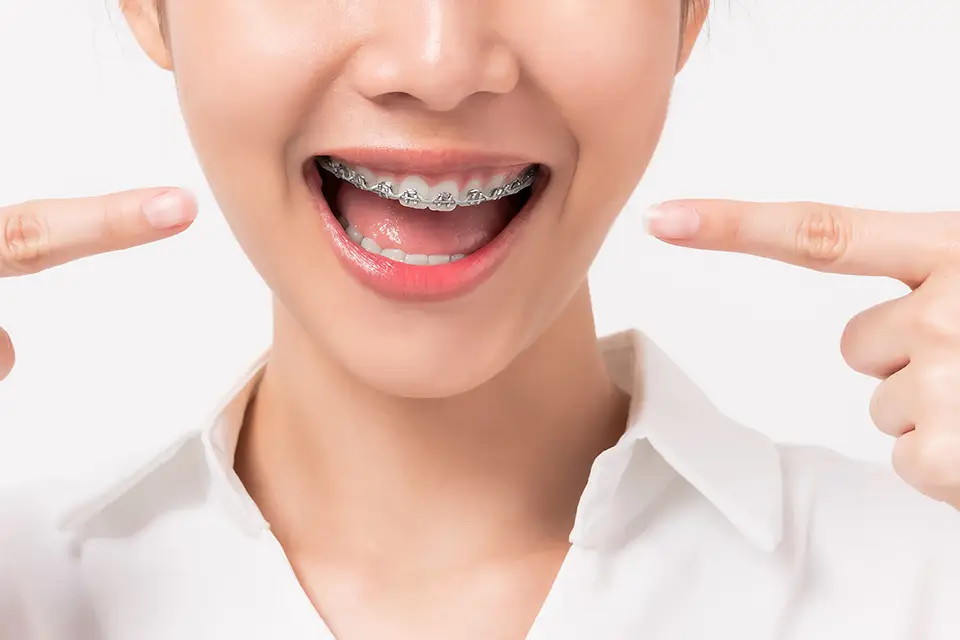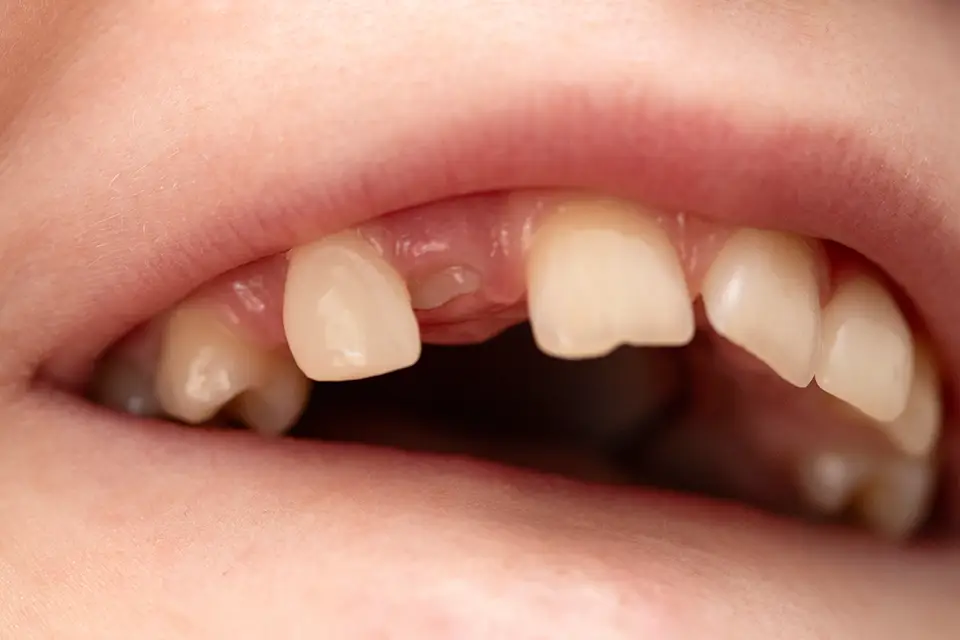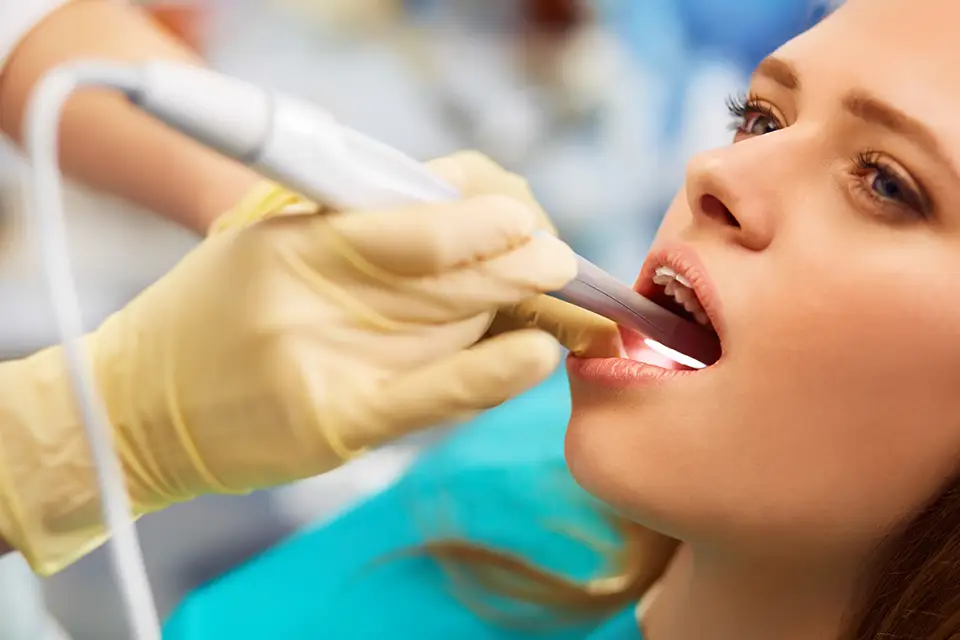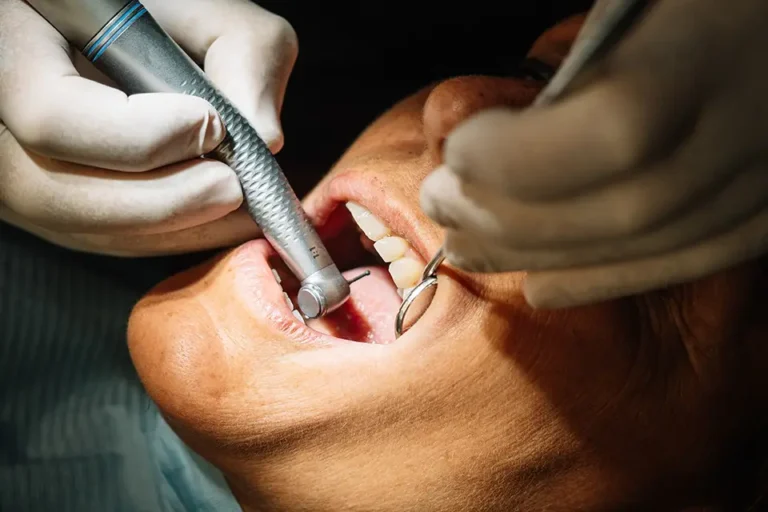What Is Acid Reflux?
Acid Reflux, or gastroesophageal reflux disease (GERD), is a condition in which stomach acid rushes back into the esophagus, causing discomfort and symptoms. Usually, this reflux is stopped by the lower esophageal sphincter (LES), a ring of muscles between the esophagus and stomach.
However, LES weakness or abnormal relaxation can cause stomach acid to increase, which can cause heartburn, sour-tasting acid regurgitation, and swallowing difficulties. Some causes of acid reflux include being overweight, eating particular foods, smoking, and pregnancy.
People frequently utilize lifestyle changes, over-the-counter medications, and prescription drugs to treat the symptoms and lessen acid production.
How Can Acid Reflux Affect Dental Health?
Acid reflux can have a harmful impact on dental health. When stomach acid runs back into the mouth on a regular basis, it can damage tooth enamel and cause dental problems. The acid erodes the teeth’ protective outer layer, making them more susceptible to decay and cavities.
The acid can also discolor teeth and increase tooth sensitivity. In addition, since acid reflux can irritate and inflame the gums, chronic acid reflux also causes gum disease.
In order to lessen the possibility of dental problems, it’s critical to seek treatment for acid reflux and keep up good oral hygiene habits, like routine brushing, flossing, and dental checkups.
10 Ways to Prevent Acid Reflux from Damaging Your Teeth
Here are five tips to help protect your teeth from acid reflux damage:
Maintain Proper Oral Hygiene
Brush your teeth at least twice daily using fluoride and a soft-bristled toothbrush. Also, remember to brush your tongue carefully. In addition, floss your teeth at least once daily to eliminate plaque and food particles.
Rinse Your Mouth with Water
If you have acid reflux, rinse your mouth with water to help neutralize and wash out the acid. To lessen the acid contact with your teeth, swish water around in your mouth.
Wait to Brush Your Teeth
Delay brushing your teeth shortly after experiencing acid reflux. The acid can temporarily soften the enamel, and brushing too soon can damage the weakened enamel. Instead, wait around 30 minutes for your saliva to neutralize the acid naturally.
Use Antacids or Prescribed Medication
Discuss using antacids or medications with your doctor to manage your acid reflux. These medications can aid in reducing the frequency and severity of acid reflux episodes by lowering the acidity in your stomach.

Change Your Diet and Lifestyle
List the foods and drinks that worsen your acid reflux and try to avoid them. Acidic and spicy foods, citrus fruits, carbonated beverages, alcohol, and caffeine are common triggers. Additionally, to reduce acid reflux symptoms, maintain a healthy weight, avoid smoking, and elevate the head of your bed.
Chew Sugar-Free Gum
To neutralize acid and remove harmful substances from your teeth, chewing sugar-free gum increases saliva production. It can be beneficial after meals or when experiencing acid reflux symptoms.
Drink Water with Meals
Drinking water during and after meals will help dilute stomach acid and lessen its detrimental impact on your teeth. Additionally, it stimulates the production of saliva, which helps to protect your tooth enamel by neutralizing acids.
Avoid Acidic Beverages
Acidic drinks like citrus juices, sodas, and sports drinks can erode tooth enamel. Instead, choose water, herbal tea, or milk as healthier options less likely to cause acid damage to your teeth.
Use Fluoride Mouthwash
Rinse your mouth with fluoride after brushing and before bed. Fluoride strengthens tooth enamel and prevents acid erosion. To use mouthwash properly, follow the instructions on the label.
Schedule Routine Dental Appointments
In order to monitor your oral health and look for any signs of damage from acid reflux, it is crucial to have regular dental exams. Your dentist can provide professional cleanings, offer individualized guidance, and recommend additional preventive measures based on your situation.
Remember that treating acid reflux is essential for maintaining your overall well-being, and taking precautions to safeguard your oral health is a crucial part of that process.
Therefore, speaking with your dentist and healthcare professional for specialized advice and recommendations is always better. Call us at Zara Dental if you live in Houston, Texas, or have any additional questions immediately!








